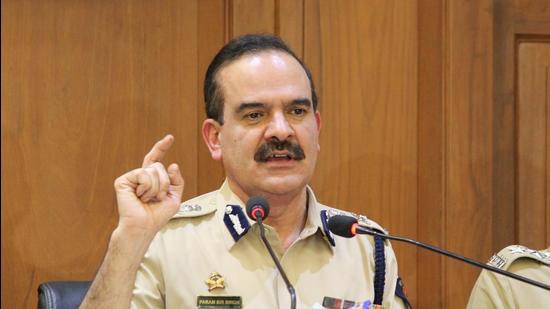The degeneration in governance systems
If Param Bir Singh had spoken up earlier, he could have been a part of a hall of fame of the finest officers in the country
A girl from a sleepy town of Uttar Pradesh was selected for the Indian Administrative Service (IAS). Her first assignment was that of a joint magistrate. One day, when she went to her office, she found a sealed envelope filled with currency notes. She summoned the chief clerk to her office who said this was quite normal and would come in every month. She returned the envelope but the clerk insisted that this was par for the course.

Shocked by this incident, the young woman sought advice from a senior officer. This is all part of the system, said the official, those who follow this dastoor and dastoori (convention and kickback) face no problem. The lower strata of our administrative system is politically so powerful that the rule of law cannot be implemented so easily, it would seem. Years later, the same officer achieved a higher position in the state. She had set new standards of this kind of dastoor and dastoori during her long tenure.
In the early days of my career, this story used to surprise me. However, later this surprise turned into a growing belief that there are key elements of continuity in government systems, irrespective of the political party in office or which officer is at the helm.
This is what the allegation by Param Bir Singh, ex-police commissioner of Mumbai, has proved. He had alleged that the home minister of Maharashtra had not only given the target of raising ₹100 crore per month to the suspended inspector Sachin Vaze but had suggested ways of achieving this. Param Bir Singh had sought a Central Bureau of Investigation (CBI) probe into these allegations from the Supreme Court (SC), which was rejected. For context, remember, a few months ago, he had asked that the Mumbai Police should investigate the death of actor Sushant Singh Rajput.
There have been other instances of officers raising their voices against perceived injustices. In 2003, Bihar’s then director-general of police, DP Ojha, was removed from his post by then chief minister Rabri Devi. He was determined to take action against criminal elements aligned to the ruling party of that time.
While in office, he even called those in power “herds of devils and criminals”. When Ojha was removed, there was great sympathy for him. He contested the election as an independent candidate but got very few votes. What he did not seem to have understood is that honesty is not a quality that translates into political success.
A similar story is one of a 1991 batch IAS officer Ashok Khemka. He often clashed with those at the helm of power as a result of his honesty. This Haryana cadre officer had often been at loggerheads with the chief ministers in his three-decade-long career, which resulted in 53 transfers in 28 years. The current Manohar Khattar government in Haryana has transferred him several times.
Ojha and Khemka may have devoted their lives to dealing with the game of dastoor and dastoori, but there are many officers who have accepted this. Some of them have been prosecuted for this. Three IAS officers, including the then coal secretary Harishchandra Gupta have been convicted in the coal scam. Harishchandra Gupta was the district magistrate of Allahabad in 1982. At that time, he was considered a good and efficient administrative officer. As a young reporter, I observed his work closely and I felt at that time that he would later make a name for himself and one day be considered a great officer. The events which followed came as a shock to me.
I would like to give one more example of how far our system can go to hide its shortcomings. After the Mumbai blasts, a committee headed by former home secretary NN Vohra prepared a report about the nexus between criminals, bureaucrats and politicians. Only 11 pages were made public two years later, of the 110-page report submitted in 1993. When pressure was exerted on the government to make the entire report public, it moved to the SC.
The court held that the government was not obliged to disclose the report. It also expressed the expectation that the government would implement its recommendations seriously. It has been 28 years since then but that report has been lying in an anonymous corner of a government record room. It would seem that officers and politicians have forgotten all about it.
Recall the riots in the United States on May 25, last year after the killing of George Floyd by a White police officer. During that time, the then President Donald Trump sent a provocative tweet. Responding to this, the Houston police chief Art Aquedo said, “Please, if you don’t have something constructive to say, keep your mouth shut.”
If Param Bir Singh had heeded the spirit behind the message and spoke up, while holding the post of police commissioner, he too could have been a part of a hall of fame of the finest officers.
Shashi Shekhar is editor-in-chief, Hindustan
The views expressed are personal



